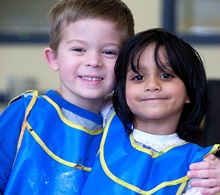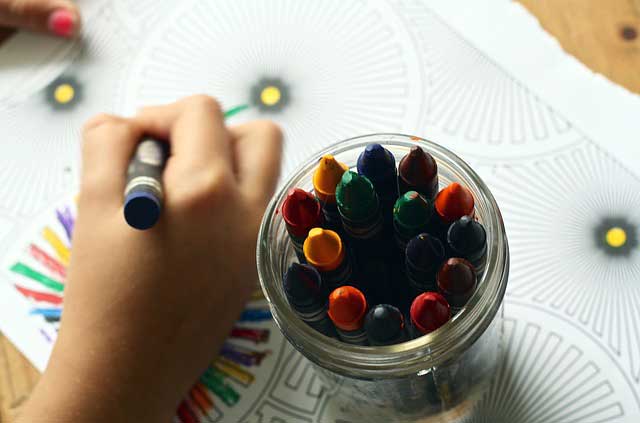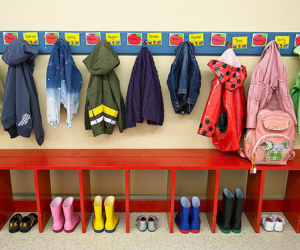 We here at Premiere Academy are big believers in fostering social and emotional development in preschoolers. Social-emotional development affects every aspect of a child’s life, including personal relationships, academic growth, and self-esteem. When children feel good about themselves and have the skills to interact successfully with others, their capacity to achieve skyrockets.
We here at Premiere Academy are big believers in fostering social and emotional development in preschoolers. Social-emotional development affects every aspect of a child’s life, including personal relationships, academic growth, and self-esteem. When children feel good about themselves and have the skills to interact successfully with others, their capacity to achieve skyrockets.
Social-emotional development often occurs organically, as parents and teachers at preschool model positive relationships. But social skills can also be taught, just like any other skill. During the preschool years, children can learn the basics of emotional literacy, social interactions, and problem-solving. In this article, we offer tips for you on fostering social-emotional development for your preschooler at home.
Foster Emotional Literacy in Children
According to Vanderbilt University’s Center on the Social and Emotional Foundations for Early Learning, children who have a strong foundation of emotional literacy tend to have more positive relationships with others, feel happier, and even do better academically. One critical aspect of emotional literacy is being able to identify emotional responses.
Help your child identify and articulate how she’s feeling, first by labeling her feelings yourself. “You’re crying and your face is red. I can tell you feel really mad right now. Do you want to tell me about it?” Give your child permission to express negative emotions and offer reassurance. Intense feelings of anger and sadness can feel frightening to a child. Help your child understand that these negative emotions are a normal part of life and that you’ll help her handle them along the path to emotional maturity.
Build Your Preschooler’s Social Confidence
Children vary widely in their social readiness. Some children are naturally social, effortlessly interacting with others. Other children may seem shy, anxious, or even aggressive in social situations. Differences in temperament usually account for these variations, but a little education can go a long way in your child’s social development, building confidence and increasing the chances for social success. Teach your child how to say hello, look someone in the eye, or ask to play, just as you would teach your child how to wash his hands or put on his coat. Use playdates to help build your child’s social skills. Give your child the words to say and model how to initiate a social interaction, e.g., “Tap your friend on the shoulder and say, ’Can I play with you?’”
Manage a Preschooler’s Challenging Behavior
Your children’s cognitive, emotional, and verbal skills are still maturing. Developing the impulse control to consistently share, take turns, and express negative emotions appropriately takes a long time. Your patient response will help your preschooler in her path to social-emotional maturity. Wondering how to help? First, be proactive. Set clear limits about acceptable behavior. Use positive language and tell your child what to do, e.g., “You can’t hit your brother. You can say, ‘please stop,’ or you can come get me for help.” Pay attention to cues that your child needs extra support and step in before a blow-up occurs, especially when your child is hungry, tired, bored, or overstimulated.
Use meltdowns, hitting, or other challenging behaviors as learning opportunities. First, calmly and quietly help your child regain control. Later, you can talk with your child about what happened. Listen with empathy and then discuss possible solutions and approaches for next time. Allow your child to experience natural consequences. For example, if your child breaks another child’s toy, she should help fix it. A loving, but firm, response to inappropriate behavior teaches your child that you are in control even when she isn’t and that you will keep her safe until she can keep herself safe.
We believe that healthy social-emotional growth for preschool and pre-k is just as important as cognitive or academic growth. Our curriculum provides teachers with research-based tools for fostering strong emotional development while creating more peaceful, caring classrooms.


 The decision where to send your child to preschool can seem overwhelming. After all, a lot is riding on this choice.
The decision where to send your child to preschool can seem overwhelming. After all, a lot is riding on this choice.
:max_bytes(150000):strip_icc():format(webp)/GettyImages-538460233web-56f0373e5f9b5867a1c583cd.jpg)
 We here at Premiere Academy are big believers in fostering social and emotional development in preschoolers. Social-emotional development affects every aspect of a child’s life, including personal relationships, academic growth, and self-esteem. When children feel good about themselves and have the skills to interact successfully with others, their capacity to achieve skyrockets.
We here at Premiere Academy are big believers in fostering social and emotional development in preschoolers. Social-emotional development affects every aspect of a child’s life, including personal relationships, academic growth, and self-esteem. When children feel good about themselves and have the skills to interact successfully with others, their capacity to achieve skyrockets.